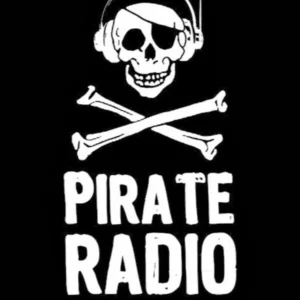Catching and prosecuting illegal radio operators may see enhanced efficacy with the PIRATE Act now in effect.
 Having successfully navigated both chambers of Congress, the bill reached President Trump in mid-January, and he formally signed it last Friday. This enactment grants the Federal Communications Commission expanded authority to combat and deter pirate operations.
Having successfully navigated both chambers of Congress, the bill reached President Trump in mid-January, and he formally signed it last Friday. This enactment grants the Federal Communications Commission expanded authority to combat and deter pirate operations.
Chairman Ajit Pai released a statement on Monday, emphasizing the unequivocal illegality of pirate radio. He highlighted the potential interference these transmissions pose to licensed radio signals, including broadcasters’ dissemination of crucial public safety information to their communities. The FCC, under Pai’s leadership, has intensified enforcement efforts in recent years, with a notable focus on cracking down on illegal broadcasting.
Expressing pride in the work undertaken by the Enforcement Bureau and its dedicated field staff, Pai extended gratitude to President Trump. He underscored the bipartisan nature of the legislative effort and affirmed the FCC’s commitment to being a robust enforcer, actively addressing illegal broadcasting.
For years, broadcasters have urged the federal government to take more decisive action against pirate operators, a sentiment echoed by FCC Commissioner Michael O’Rielly, who has been a staunch advocate for stronger enforcement.
Reps. Paul Tonko (D-N.Y.) and Gus Bilirakis (R-FL) reintroduced the bill in early 2019 after it failed to secure a vote in a prior legislative session.
The PIRATE Act’s potency lies in its specifics. The act empowers the commission to impose fines of up to $100,000 per violation and $2 million in total. It streamlines the enforcement process, mandates FCC-led pirate radio enforcement sweeps in cities with the highest concentration of pirate radio use, and seeks to enhance coordination among federal, state, and local law enforcement.
Additional provisions include the creation of an annual FCC report summarizing the legislation’s implementation and related enforcement activities. The FCC gains the authority to bypass the Notice of Unlicensed Operation step and directly issue a Notice of Apparent Liability.
The legislation also prompts the establishment of a publicly accessible online database listing all U.S. stations and entities notified of operating a broadcast radio station without authorization.
Dennis Wharton, executive vice president of communications for the National Association of Broadcasters, labeled the PIRATE Act a long-standing legislative priority, emphasizing that pirate operators pose a threat to licensed, legal radio stations. The FCC has previously found instances where pirate radio interfered with communications between airline pilots and air traffic controllers, creating a public safety hazard.
Details regarding the implementation timeline for various aspects of the law are pending. Commissioner O’Rielly, in late 2019, emphasized that the PIRATE Act’s fines aim not only to penalize offenders but also to bring these cases to the attention of the Department of Justice. He noted that the list of licensed radio operators could serve as a reference for citizens and advertisers to distinguish between legitimate stations and illicit operators.
